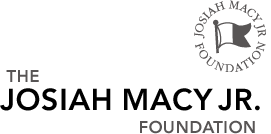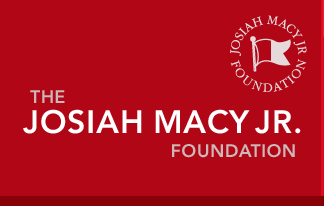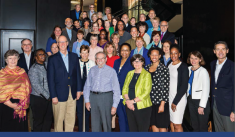Our Grantees
Across the Foundation’s priority areas, our grantees are working to improve the health of the public through innovative research and programs. The Foundation awards up to 40 grants on a rotating schedule each year.
Realizing Women Faculty Potential in Academic Medicine: A Cultural Change Intervention
The lack of advancement for women in academic medicine has proved to be a persistent problem. This project is designed to analyze the problem in the overall context of the culture of academic medicine, and then to identify ways this culture might be changed to increase the number of women in academic medicine, especially in leadership positions.
This is intended to be a five-year study. The Macy Foundation grant is supporting the first two years, anticipating that the investigators will complete their work with federal and other funding.
Following a pilot study, researchers identified a group of 5 medical schools whose deans were willing to commit to the larger study, and a national advisory board. The participating schools are Duke University, George Washington University, Tufts University, University of Minnesota, and University of New Mexico.
Dr. Linda Pololi, principal investigator, and her research team succinctly summarized the rationale behind their proposal: “Despite exhaustive documentation of the situation, women’s lack of advancement in the biological sciences remains intransigent.” They also provided compelling statistics to support the need for their proposed study:
In the 125 U.S. medical schools, women now constitute 26 percent of clinical faculty and 29 percent of basic science faculty, yet the proportion of full professors who are women only rose from 9 to 13 percent between 1980 and 2003. Currently 14 percent of tenured faculty are women, but only 3 percent have achieved full professorship. This compares with 22 percent of male faculty counterparts.
- According to an Association of American Medical Colleges (AAMC) study, 23 percent of men but only 5 percent of women attain full professorship after a mean of 11 years on a medical school faculty.
- Only 8 percent of department chairs are women and many schools have never had a female department head. Only 7 percent of medical school deans are women. Though the team will focus specifically on the issue of women in academic medicine, Dr. Pololi noted that the questions raised by the relative lack of advancement for women parallel those related to under-representation of minorities and generalists in the fields of academic medicine.
The significant goal underlying this project is to analyze the “culture of academic medicine” and to identify ways to improve it to benefit all faculty members.
- In depth interviews will be conducted with 12 women and 12 men faculty members at the five medical schools, with deliberate over-sampling of under-represented minorities with at least 20 percent of the sample generalists. These interviews will be used to generate working hypotheses.
- A national quantitative survey of the nation’s 126 medical schools will be performed by the AAMC.
- The deans of the five schools will collaborate with members of the National Advisory Group on project design and then make recommendations for new programs, policies and practices based on the study data. The participating deans have committed to implementing these in their own institutions. This group also will assist in national dissemination of the project’s findings.
- Promising approaches will be identified by looking especially at the efforts of medical schools that have already begun to make improvements, with attention to successes, barriers, outcomes and best practices.
Results will be shared with the Learning Network and will be incorporated in interventions at the demonstration sites.
In later stages of the study an Active Change Process will be established as the five deans work with the Learning Network to support and facilitate change. Each demonstration site will make a commitment of high-level faculty time and matching funds and resources.
In subsequent years, activities of the Learning Network will link the five member institutions in an effort to drive change, working with experts in organizational change from MIT and the Institute for Healthcare Improvement, as well as Drs. Pololi and Inui; and dissemination of the results and a controlled evaluation of the study will be an integral part of the final years of the five-year project.




 11.13.18
11.13.18